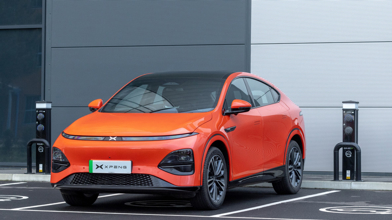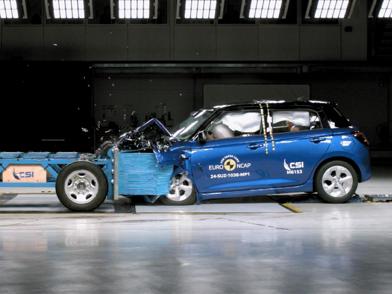The European Commission has made it a legal requirement for all new vehicles, including those that have already launched, to be fitted with an Intelligent Speed Assist (ISA) by 7 July 2024. The mandates will also require crash data recorders and reversing cameras.
The ISA uses a combination of GPS data and traffic-sign-recognition cameras to sense the speed limit of the area, and then send visual and audible warnings to the driver until they're driving within the limits.
There are multiple ways automakers can do this, like beeping or buzzing, sending steering wheel vibrations (similar to lane-keep assist), or even counter-forcing through the accelerator to encourage the driver to lift their foot off the pedal.
But the mandate won't physically apply the brakes on your vehicle. Not yet, anyway.
Unlike cruise control, an ISA system allows you to accelerate and decelerate as normal, provided you don't go above the set speed limit. All new cars, vans, trucks and buses will need to be fitted with an ISA, but the technology needs to be adapted before motorcycles will get the pleasure.
There are ways to override the system, by pressing hard on the accelerator or turning it off in the settings. But it will default back to being on the next time you start the car up. And, if the process of turning it off each and every time becomes a tedious task, will you bother?
European Commissioner, Elżbieta Bieńkowska, said in a statement that each year, 25,000 people are killed on European roads. Most of these deaths are caused by human error, with speed a leading factor.
"With the new advanced safety features that will become mandatory, we can have the same kind of impact as when the safety belts were first introduced," she said.
The European Automotive Manufacturers Association has raised concerns over the technology, warning that road signs aren't standardised across Europe so they may be too complicated for the cars to detect. Digital map services also aren't always current, and some roads lack speed limit information altogether.
"That is why intelligent speed assistance systems should be introduced gradually in cars to provide enough time to update our infrastructure," it said in December.
But some automakers are embracing the change.
Volvo said earlier this month that it would limit its cars to 180km/h, and added that it's considering using tech that puts stricter speed limits on cars driving near schools and hospitals.
Volvo CEO, Håkan Samuelsson, said "we want to start a conversation about whether car makers have the right or maybe even an obligation to install technology in cars that changes their driver's behaviour."
While this is all very Europe-centric right now, it could very easily make its way to Aotearoa's shores too.




